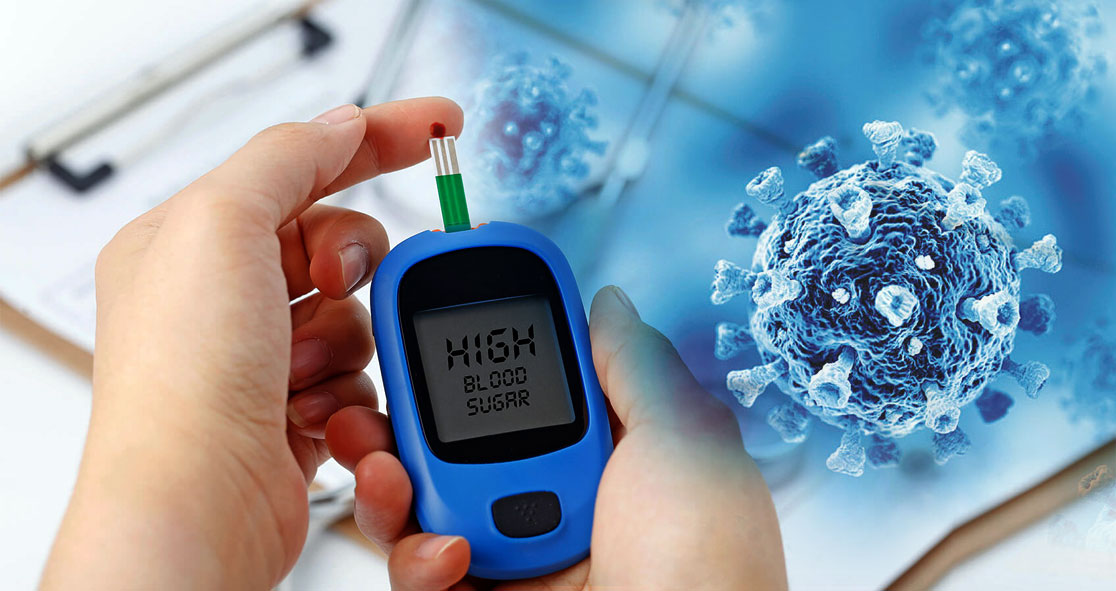Experts across the globe have noted that certain people are at greater risk of developing severe COVID-19 illness or even dying from it. And amongst those, people with diabetes are more vulnerable.
Now, a new study from the researchers of the University of Michigan has uncovered why people with type 2 diabetes develop severe COVID-19 illness, according to Medical Xpress.
The study also found that the reason might offer hope for potential therapy.
The researchers found that the main culprit is an enzyme known as SETDB2, which has been implicated in the non-healing, inflammatory wounds in people with diabetes.
Researcher Dr. James Melvin and his team worked in the lab of Dr. Katherine Gallagher to understand a possible link between the enzyme and the inflammation caused in COVID-19 patients in the ICU.
Experimenting on a mouse model of COVID-19 infection, the team found that the enzyme was decreased in immune cells involved in the inflammatory response, known as macrophages, of infected mice with diabetes.
Dr. Melvin said, “We think we have a reason for why these patients are developing a cytokine storm.” Dr. Gallagher and Dr. Melvin noted that as SETDB2 went down, the inflammation went up.
Moreover, the team found that a pathway called JAK1/STAT3 regulates the enzyme SETDB2 in macrophages during COVID-19 infection. This particular finding could pave the way for a potential therapeutic.
Previous research found that interferon, a cytokine important for viral immunity, increased SETDB2 in response to wound healing.
In the new study, the researchers found blood serum from patients in the ICU with diabetes and severe COVID-19 had reduced levels of interferon-beta compared to patients without diabetes, according to Medical Xpress.
Dr. Gallagher explained, “Interferon has been studied throughout the pandemic as a potential therapy, with efforts going back and forth between trying to increase or decrease interferon levels. My sense is that its efficacy as a therapy will be both patient and timing specific.”
“We’re trying to home in on what controls SETDB2, which is sort of the master regulator of a lot of these inflammatory cytokines that you hear about as being increased in COVID-19, such as IL-1B, TNFalpha, and IL-6,” she added.
“Looking upstream at what’s controlling SETDB2, interferon is at the top end, with JaK1 and STAT3 in the middle,” Dr. Gallagher noted. “Interferon increases both, which increases SETDB2 in a sort of cascade.”
She went on to explain that this is important because identifying the pathway could help target the enzyme.
Dr. Melvin said, “Our research is showing that maybe if we are able to target patients with diabetes with interferon, especially early in their infection, that may actually make a big difference.” The article was published in Medical Xpress.























